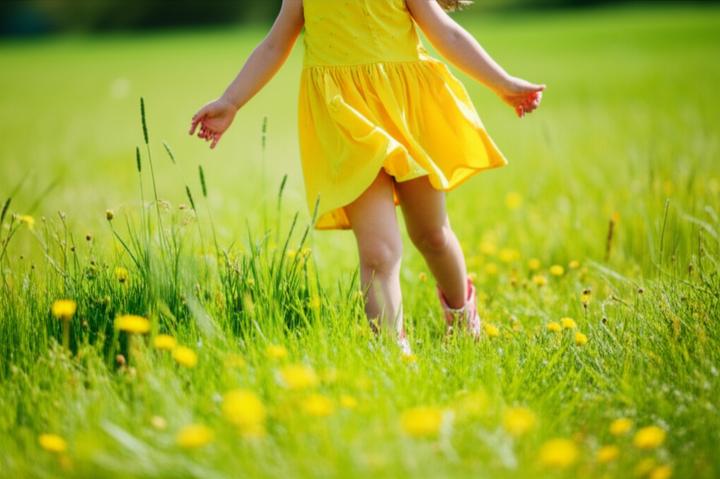7 Non-Stimulant Energy Boosts for When Insomnia Leaves You Exhausted
Written by Klarity Editorial Team
Published: Oct 22, 2025

Insomnia doesn’t just rob you of sleep – it steals tomorrow’s energy too. If you’re among the 30% of adults who experience insomnia symptoms, you know the desperate search for anything that might fuel your day without worsening your sleep problems. This guide explores science-backed, non-stimulant methods to boost your energy when sleep deprivation has you running on empty.
The Insomnia-Fatigue Cycle: More Common Than You Think
Feeling alone in your sleep struggles? You’re not. According to the American Academy of Sleep Medicine, chronic insomnia affects about 10% of adults, with even more experiencing occasional sleep disturbances. The resulting fatigue impacts millions daily.
Recent statistics reveal:
- 70% of adults report insufficient sleep at least one night per month
- 11% struggle with chronic insomnia disorder (sleep difficulties at least three times weekly for three months or longer)
- The economic impact of insomnia exceeds $63 billion annually in lost productivity
At Klarity Health, we frequently see patients struggling to balance daytime function with nighttime insomnia treatment. The good news is that effective energy management techniques exist that won’t interfere with your sleep rehabilitation efforts.
1. Creatine: The Overlooked Energy Supplement
While commonly associated with fitness enthusiasts, creatine offers significant benefits for those battling fatigue from sleep deprivation.
The Science: Creatine helps recycle ATP (adenosine triphosphate), your cells’ primary energy currency. Research published in the journal Neuroscience shows creatine supplementation can improve cognitive function during sleep deprivation.
Practical Application:
- Start with 3-5g daily, preferably with a meal
- Take earlier in the day (before 2pm) to avoid potential sleep disruption
- Stay well-hydrated, as creatine increases water retention in muscles
Caution: While generally considered safe, consult a healthcare provider before starting any supplement regimen, especially if you have kidney concerns.
2. Cold Exposure: The Instant Alertness Trigger
Cold stimuli can provide immediate energy boosts by activating your sympathetic nervous system.
Quick Applications:
- Splash cold water on your face for 10-15 seconds
- Hold a cold pack or ice cube against the back of your neck
- Drink 16oz of ice-cold water within 5 minutes
Research from the University of Chicago shows cold exposure increases alertness by triggering norepinephrine release, providing a stimulant-like effect without caffeine’s potential sleep disruption.
3. Strategic Movement: The Right Exercise at the Right Time
While exhaustion might make you avoid activity, strategic movement can actually create energy.
Energy-Boosting Movements:
- 10-minute walk (preferably outdoors in natural light)
- 5 minutes of dynamic stretching focusing on large muscle groups
- 20 jumping jacks followed by 10 deep breaths
A Stanford University study found that even brief, low-intensity movement can increase energy levels by 20% while reducing fatigue perception by up to 65%.
4. Eye Exercises: Unexpected Energy Centers
Eye fatigue contributes significantly to overall tiredness, especially in those with sleep deprivation.
Quick Eye Refreshers:
- The 20-20-20 rule: Every 20 minutes, look at something 20 feet away for 20 seconds
- Eye rolls: Slowly circle your eyes clockwise then counterclockwise
- Palming: Rub hands together until warm, then cup over closed eyes for 30 seconds
These exercises help reduce eye strain, which neurological research shows can relieve associated mental fatigue and improve alertness.
5. Hydration: The Simplest Energy Solution
Even mild dehydration (1-2% body weight) impairs cognitive function and magnifies fatigue.
Hydration Strategy:
- Start the day with 16oz of water
- Aim for half your body weight (in pounds) in ounces of water daily
- Set hourly reminders to drink if fatigue is severe
A University of Connecticut study found that just 1.5% dehydration led to decreased concentration, increased perceived effort, and heightened fatigue – all problems already exacerbated by sleep deprivation.
6. Strategic Nutrition: Fuel Without the Crash
Nutrition becomes even more critical when managing energy with insomnia.
Energy-Stabilizing Foods:
- Banana with almond butter (potassium + protein + healthy fats)
- Hard-boiled eggs with whole grain crackers (choline + steady carbs)
- Greek yogurt with berries and walnuts (protein + antioxidants + omega-3s)
Avoid high-glycemic carbohydrates alone, which can trigger energy crashes that feel devastating when already sleep-deprived.
7. Breathing Techniques: Oxygen as Energy
Controlled breathing can quickly alter your energy state by changing oxygen levels and nervous system activation.
Energizing Breath Technique:
- Sit comfortably with a straight spine
- Inhale deeply through your nose for 4 counts
- Hold briefly
- Exhale forcefully through your mouth for 4 counts
- Repeat 10 times
Research from the Journal of Neurophysiology shows this technique increases blood oxygen levels and stimulates the sympathetic nervous system for natural alertness.
When to Seek Professional Help
While these energy management techniques can help you function day-to-day, chronic insomnia requires proper treatment. At Klarity Health, our specialists can evaluate your sleep issues and develop personalized treatment plans that address both your insomnia and daytime fatigue concerns.
If you experience:
- Insomnia symptoms three or more nights per week for over three months
- Daytime fatigue that significantly impacts your quality of life
- Concerns about potential sleep disorders like sleep apnea
Consider scheduling a consultation with a sleep specialist who can identify underlying causes and recommend appropriate treatments beyond symptom management.
The Bottom Line
Managing energy while battling insomnia requires a multi-faceted approach that doesn’t compromise sleep quality. These non-stimulant strategies provide alternatives to caffeine and other stimulants that might perpetuate your insomnia cycle.
Remember that while these techniques can help you function better during difficult periods, addressing the root cause of your insomnia remains essential for long-term well-being.
Have you found other effective ways to boost energy without stimulants? What works best for you when sleep deprivation hits hard? Share your experiences in the comments below.
Looking for support with Insomnia? Get expert care from top-rated providers
Find the right provider for your needs — select your state to find expert care near you.

